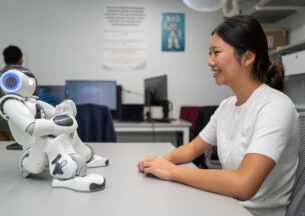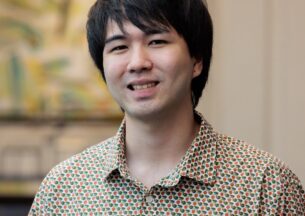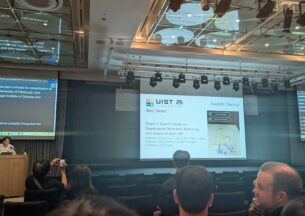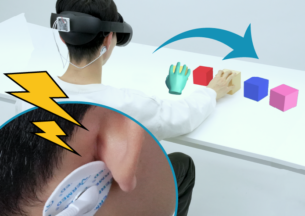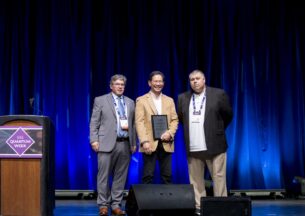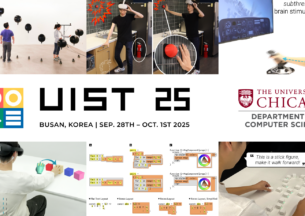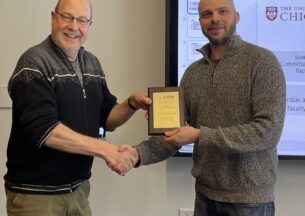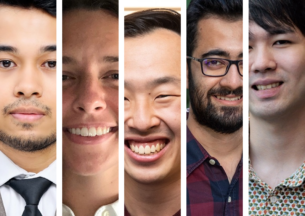UChicago CS Student Awarded NSF Graduate Research Fellowship

Second year UChicago CS PhD student Christopher Zhu, who works with Assistant Professor Raul Castro Fernandez, is a recipient of this year’s prestigious NSF Graduate Research Fellowship. The program provides funding support for exceptional students pursuing master’s or doctoral degrees in STEM disciplines. The five-year fellowship provides three years of financial support that includes an annual stipend of $37,000.
Zhu is interested in finding solutions to help people obtain value out of sharing data. Data’s value increases when combined with other data; for example, patient data shared across hospitals will help improve patient care and medical studies. However, there are drawbacks to sharing sensitive data such as compliance and privacy violations. And when people cannot balance the drawbacks of leaking data with the upsides of sharing, they default to not sharing. The significant potential of sharing data is squandered.
“I was immediately intrigued by this problem because by overcoming these drawbacks, so many societally impactful groups—including hospitals, researchers, and F500 companies—will leverage their data in a much more collaborative way,” Zhu states. “I hope the status quo around data will transform to one of collaboration as people find more ways to jointly gain insights on their data.”
The overall aim of Zhu’s research is to help people benefit from the upsides of data sharing without any of the drawbacks. In his previous work, he and his research group Chidata proposed the Data Station, a system that facilitates secure and timely computation on joint data from multiple organizations. It is designed so that users can run computation on their data without having to release any raw data, allowing for the data’s combination and usage in spite of the drawbacks to sharing.
Currently, he is studying why contemporary technologies do not sufficiently satisfy the practical needs for data sharing, and he is evaluating the benefits and drawbacks of each technology. He is especially interested in comparing each technology over the increasingly relevant dimension of trust: in practice, users place utmost importance on understanding what they need to trust in a technology because sensitive data ideally requires guarantee—not merely trust—that there will be no leakage. After his analysis, he hopes to be able to evaluate which technology offerings are best able to resolve user concerns about trust and ultimately understand which are the most promising technologies that will help work towards enabling data sharing. Ultimately, he hopes to operationalize the most promising technologies so they can be widely deployed in practice.
“I am extremely grateful to receive the NSF fellowship, and I would like to thank my family, friends, collaborators, and advisor for their help throughout this process.” Chris stated. The fellowship will help support him as he pursues solutions to help people unleash the value of their data by sharing it.



